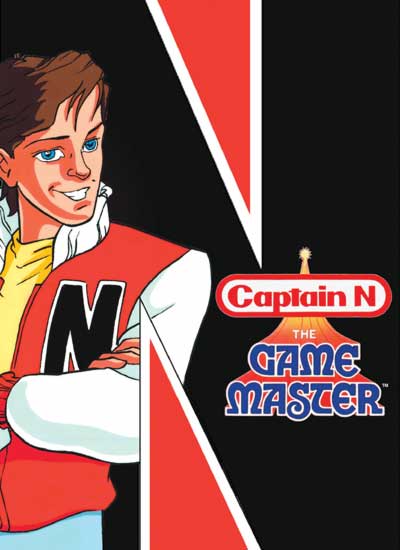
The Year With No New Games-Part 8: The New Game Masters
I am a child of the 1980s and 1990s, the heady days when there would still be cartoons on our local Fox affiliate (WNYW-NY), the independent channel (WPIX-NY), and the unaffiliated channel (WWOR-TV) during the ungodly early weekday hours, weekday afternoons after school, Saturday mornings, and early Sunday mornings. These included Captain N: The Game Master on NBC, The Super Mario Bros. Super Show!, and eventually more questionable shows like Double Dragon and Mutant League. During the weekend, after the cartoons finished, there would be live action shows like WMAC Masters (which I rediscovered through a Google search for “martial arts tournament fake”). There was one show that I dimly remembered until a multi-pronged Wikipedia, Google, and YouTube search unearthed it and triggered warm memories of admiration and jealousy. It was Video Power, and the show I remember was apparently the show’s second incarnation, but what could be more memorable to a child than a game show where kids competed against each other in video game score attacks and video game trivia quizzes?
At the end of each Video Power, the winner would have a chance to run a prize gauntlet to attach as many games to his or her head and torso as could remaining attached through Velcro. This was the climax of the show, the apotheosis of these gaming idols. I was fascinated by each player’s run and broke them down in my imagination to find strategies for balancing time, the unreliability of the Velcro, and the critical path through the maze to come out with as many games as possible.
This was before the Evo Championship Series, before I discovered Twin Galaxies through The King of Kong, before I found out about the Nintendo World Championships, and definitely before speed-running games was a filmed and shared experience. I didn’t see The Wizard until long after Video Power‘s run ended, so the children I saw on Video Power were my childhood standard-bearers for gaming prowess. They had unlocked the games’ secrets. Maybe they discovered them through the Worlds of Power tie-in novels, so I read them, indirectly inspiring a lifelong love of books. (I know I keep looking for gaming tips in Neal Stephenson’s novels.) Maybe they consulted the tomes of cheats and hints, like Tricks of the Nintendo Masters, which always had the worst cover designs. While I could try to match the show’s scores on Super Mario Bros., I just didn’t have access to games like Double Dragon III: The Gem Masters, Mega Man, or Super Glove Ball.
Since then, I’ve learned about things like critical path method for project management and how that applies to high level video game speed-running, counter-intuitive methods to enemy encounters in single player games like letting them hit you so you can exploit the invincibility flicker, and the meta-game that goes on behind competitive multiplayer games. I’ve become an adult, so I don’t hold people who are great at games with the same adulation that I did as a child. And gaming expertise has seemingly fragmented. For example, while winners of the Evo Championship Series may compete in a number of games (Justin Wong, most famous for dominating Evo for years and for the single greatest counter series in Evo history, for instance, competed in Evo 2009 in Marvel vs. Capcom 2, Street Fighter IV, Street Fighter III: Third Strike), the games will often share a system (which is why players like Justin Wong may stick to only Capcom fighting games in competitions and not compete in other two-dimensional games with different systems and timing like Mortal Kombat, much less three-dimensional games like Tekken or Soulcalibur). It makes sense; become a jack of all trades and risk also becoming a master of none or concentrate on a few games that are similar so skills can transfer from one to another.
In a way, the spirit of mastery of all games has diminished since the Video Power and Nintendo World Championship Series days, when players had to be ready to compete in a variety of games with different systems. The spirit is kept alive at the Penny Arcade Expo’s Omegathon, but I contend that the spirit is also kept alive by those who are derisively called “achievement whores.”
Consider Ray Cox, also known as “Stallion83,” the current Guinness World Record holder for highest gamerscore, who is on a quest to reach 1 million gamerscore points. According to his profile on TrueAchievements.com, he’s played 1,254 total games, ranging from Kinectimals to Ratatouille to Too Human. He’s achieved nearly 82% of all possible achievements, including the DLC that he owns for the games that he’s played, of these 1,254 games. By necessity, he’s had to plays games in all the genres currently available on the Xbox 360 and Windows Phone and acquire as many of the achievements in them as quickly as possible.
Cox, by the nature of his quest, is an extreme outlier example, but his peers all have had to dip into a variety of genres in order to accrue their gamerscore. To me, Cox and his peers carry the spirit of masterful play, adaptability, and comfort with any number of systems that I believe is in the spirit of Video Power and Nintendo World Championship Series players. One might sneer at their quest or treat achievements and gamerscore as Microsoft’s cynical attempts to hook players into the Xbox 360’s ecosystem. One might even question how achievements and gamerscore are negatively affecting game development. But I appreciate the spirit of what they do. They strive for mastery, for finding the most efficient ways to deconstruct a game to its core components, and then they move on. They are, to me, the new game masters.


